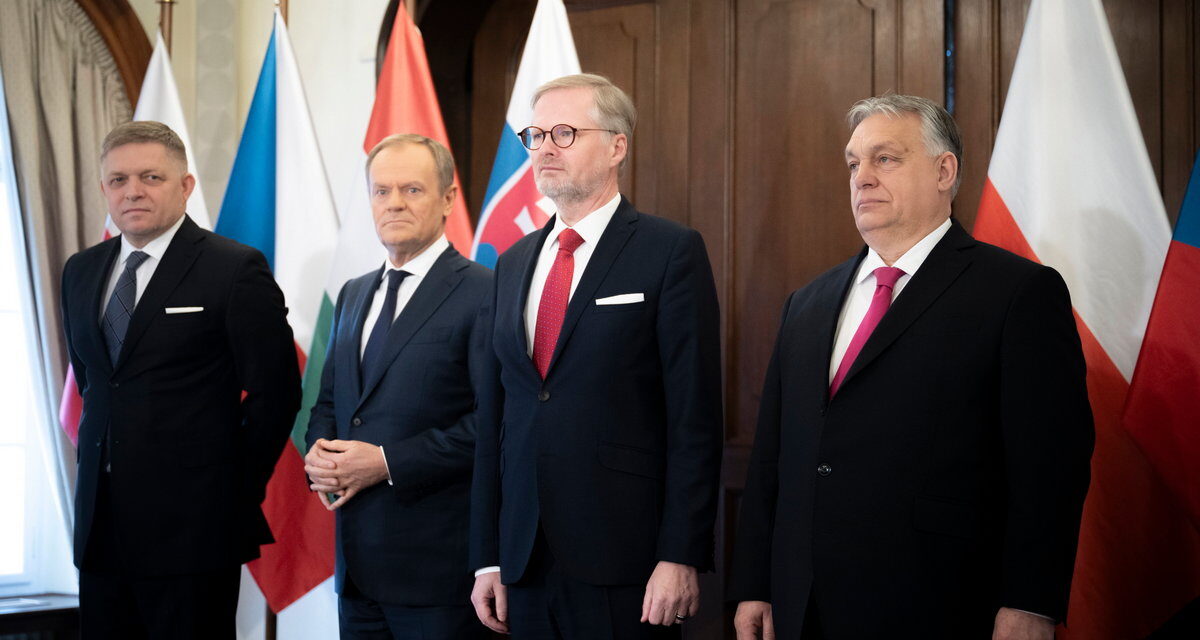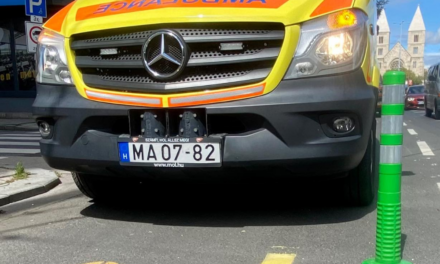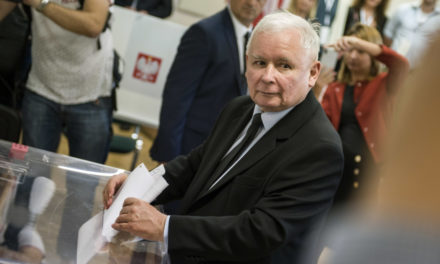Despite the differences of opinion regarding the support of Ukraine, Visegrad cooperation has meaning and a future, Viktor Orbán declared on Tuesday in Prague, at a press conference held after the summit meeting of the heads of government of the four Visegrad countries, where he emphasized that although the Russian-Ukrainian war is judged differently, there is an opportunity in common issues for cooperation. As examples, the Prime Minister mentioned the issues of migration, energy security, Ukrainian grain and Brussels' tax harmonization efforts, in which the Visegrad countries share a similar position.
"Today's meeting convinced me that Visegrád is alive and that Visegrád is important. We can acknowledge our differences with due respect, even if we dispute each other's positions. We will further strengthen cooperation in common matters. Hungary is ready for this," said the prime minister.
According to Viktor Orbán, the current summit meeting of heads of government in Prague was not the "easiest" because it was a "self-reflective meeting" and it was about whether the V4 is needed in this form.
He reminded: a similar self-reflection meeting took place even after the accession of the Visegrad countries to the European Union.
At that time, the V4 decided to continue cooperation in common interests, and this is how they reached the Russian-Ukrainian war, which "overrode everything", and the question of continuing cooperation arose again.
According to the prime minister, the "intellectually exciting meeting" showed what the parties agree on and what the opinions differ on. There was agreement that Russia's attack on Ukraine was a gross violation of international law and we also agree that Ukraine needs help. And Ukraine must be helped, this is the right attitude, added the Prime Minister.
Viktor Orbán stated: From Hungary's point of view, there is another special factor, namely that Hungary does not want a common border with Russia again, because it has had bad experiences with this in the past.
"One of the most important foundations of Hungarian national security is to have an entity to the east of us that is located between Russia and Hungary. Therefore, we also help Ukraine because of Hungarian national interests," the prime minister emphasized.
According to Viktor Orbán, there is a difference of opinion between the V4 on how to best help Ukraine. "The Hungarian position is clear: we will not send weapons to Ukraine, neither with soldiers nor without soldiers, but apart from that we will provide all assistance," he emphasized, highlighting humanitarian aid or the reception of Ukrainian refugees.
According to the Prime Minister, despite the differences of opinion regarding the assistance to be provided to the Ukrainians, it makes sense to continue cooperation in Visegrád. He also mentioned several topics in which cooperation between the Visegrad countries has been successful.
One such example is the issue of illegal migration, where the issue of quotas has not fallen off the agenda, and it is still worthwhile to cooperate in this area.
"Without our cooperation, tens of thousands or hundreds of thousands of migrants would be roaming the territory of our countries today," remarked Viktor Orbán.
In response to a journalist's question about Hungary's position on Ukraine, the prime minister emphasized that all wars can only be ended by peace negotiations, and this also applies to the Russian-Ukrainian war. Continuing this conflict will only increase the death toll, so it makes no sense. "The sooner the peace talks take place, the better," said the prime minister.
Viktor Orbán called the question of who wins the war a trap, because in his opinion it is undecidable. He also called the position that one of the parties should be declared guilty in advance, because it leads nowhere. "The issue of war guilt must be decided after the war," said Viktor Orbán and added: "I recommend strategic calm to everyone in this matter."
According to the prime minister, the Russian-Ukrainian war can be viewed through Russian or Ukrainian lenses, and every country has the right to do so. "Hungary is undoubtedly out of line, because it looks at the problem through Hungarian lenses," he emphasized.
He pointed out: the Hungarians see that Russia will not defeat Ukraine, but Ukraine, supported by the West, will not defeat Russia either. In this situation, lives must be saved and peace negotiations are needed as soon as possible.
This is the Hungarian position - stated Viktor Orbán in response to the questions.
The Prime Minister rejected the journalist's claim that Hungary was internationally isolated due to Ukraine policy.
The Czech, Polish and Slovak prime ministers also acknowledged the differences of opinion, but took a stand in favor of the continuation of Visegrad cooperation. In response to a question, all four heads of government clearly stated that their country does not plan to send soldiers to Ukraine.
"There are differences between us and these differences have not changed, these are differences that are well-known, but we have also identified topics that make sense for cooperation between our countries," said the Czech head of state, who explained that they also agreed on two things. One is that Russian aggression is a violation of international law. And the other is that Ukraine needs help," said Czech Prime Minister Petr Fiala. Petr Fiala stated: Ukraine must be supported by all means, including military aid.
His Polish colleague also agreed with him, stating: we must not forget what was the basis of the V4s. Donald Tusk then spoke about how his country is helping Ukraine with great determination.
"We talked about how we could be in Ukraine's favor to repel the Russian attack, Ukraine's support is clear," Donald Tusk stated.
The Slovak Prime Minister already had a different opinion. Robert Fico said: he believes that the situation should not be resolved with military assistance. According to him, all this will only drag out the war, instead, according to him
an immediate truce is needed.
"My opinion is that we can continue the arms deliveries to Ukraine and the allocation of money, but we will remain at the same point where we are now, only a few tens of thousands more people will die, both on the Ukrainian and Russian sides," he stated . Slovak Prime Minister Robert Fico, who added that the European Union must have its own peace plan.
MTI / civilek.info
Cover image: In the photo published by the Prime Minister's Press Office, Prime Minister Viktor Orbán of Hungary, Prime Minister Petr Fiala of the Czech Republic, Prime Minister Donald Tusk of Poland and Robert Fico of Slovakia (right) at the summit meeting of the heads of government of the Visegrad Four in Prague on February 27, 2024.
MTI/Prime Minister's Press Office/Benko Vivien Cher












